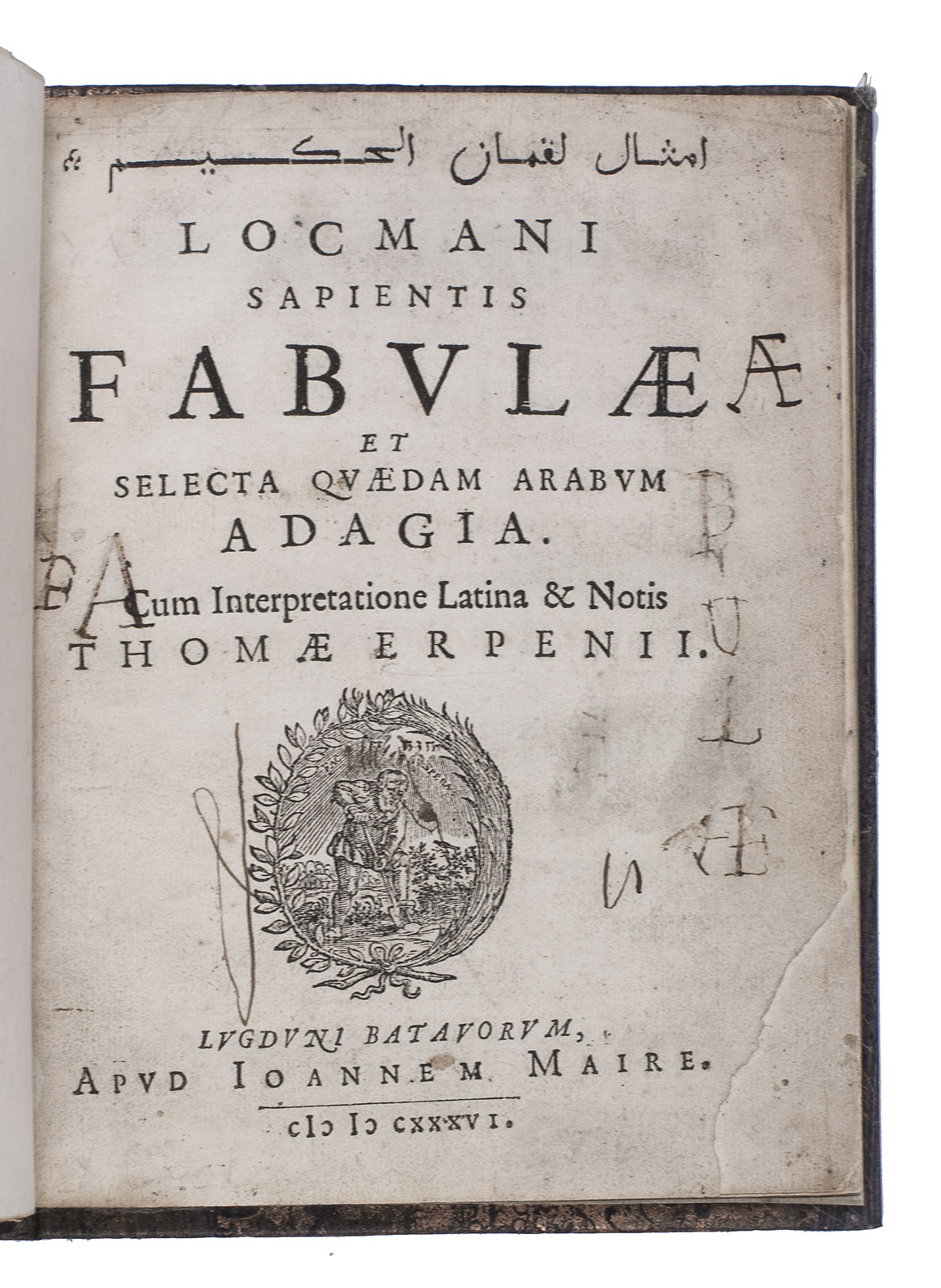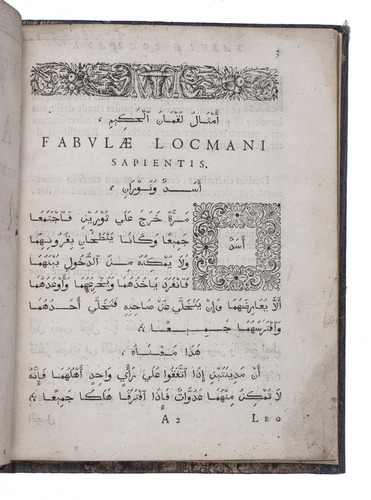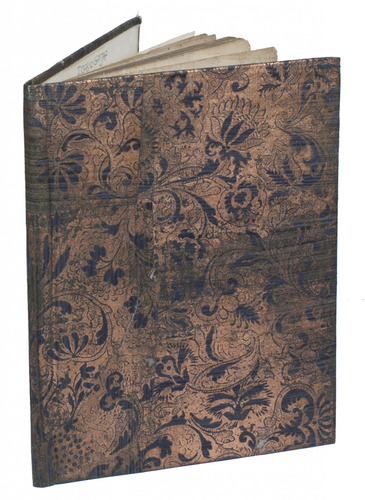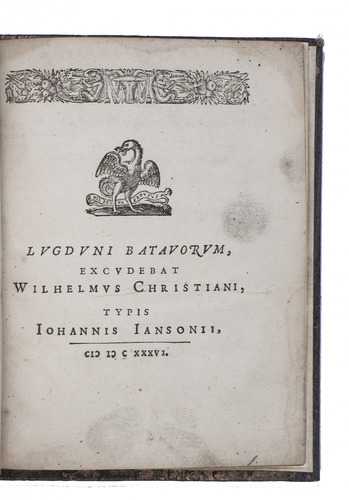LUQMAN al-Hakim (notes by Thomas ERPENIUS).
Fabulae et selecta quaedam Arabum adagia. Cum interpretatione latina & notis Thomae Erpenii.
Leiden, Joannes Maire (colophon: "excudebat" Willem Christiaens van der Boxe, "typis" Johannes Janssonius), 1636. 4to. With Maire's woodcut device on the title-page and Van der Boxe's woodcut device above the colophon. Early 19th-century boards covered with blue brocade paper. 60, [2] pp.
€ 6,500
Second edition, in the original Arabic with a Latin translation and notes by Thomas Erpenius (1584-1624), of the classic fables by Luqman (Lokman). Luqman "the greatest figure in the whole corpus of pre-Islamic myth and legend" (Cambridge history of Arabic literature, p. 378) is to Arabic what Aesop is to Greek, a real but much mythologized figure, said to have gathered his wisdom from observation of (and by some accounts conversation with) animals. Surat 31 of the Quran is named after him. Luqman's animal fables became an important part of pre-Islamic Arabic culture, were incorporated into early Islamic culture and remain popular today in both Western and Islamic culture. The fables are first given in Arabic, followed by a translation in Latin and Erpenius's notes.
Erpenius, appointed professor of Arabic at Leiden University in 1613, set up a printing office for Arabic and other "oriental" languages and had Arabic type cut under his supervision by Arent Corsz. Hogenacker. He printed the first edition of Luqman's fables as his first trial publication, still without vowel points for the Arabic type. He annotated his own copy of the first edition extensively, and these revisions were incorporated into the present second edition, printed with vowel points. The present edition uses a new Arabic type, also by Hogenacker. The larger Arabic type (a single line on the title-page) was also new and this is almost its only use in the Netherlands.
Some manuscript notes on the title-page and later owner's pencil notes in Arabic in margins and on final flyleaf. Lower outer corner torn off title-page, some marginal thumbing and waterstains and a few small wormholes. Otherwise in good condition. Definitive edition of Erpenius's seminal Luqman text, bringing the greatest Arabic fables to the Western World. J.A. Lane, "Arent Corsz Hogenacker", in: Quaerendo XXV (1995), pp. 83-111, 163191, at p. 174; Smitskamp, Philologia orientalis 70; STCN (3 or 4 copies); for Luqman: A.F.L. Beeston et al., eds., Cambridge history of Arabic literature to the end of the Umayyad period (1983), pp. 378-381.
Related Subjects:







